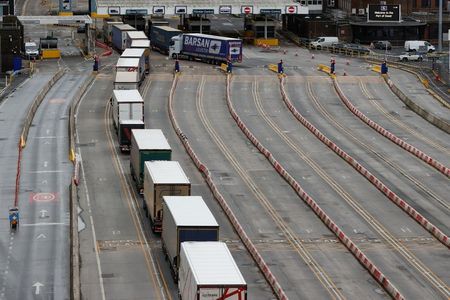Get used to queueing at Dover, says Road Haulage Association

HGV drivers better get comfortable as they need to prepare for four-hour long queues at ports, according to the Road Haulage Association.
Post-Brexit, checks at Dover and across the Channel have become the new normal, causing mile-long bottlenecks and forcing authorities to implement traffic access protocols such as Dover TAP to avoid extreme congestion in the city.
Rod McKenzie, Road Haulage Association’s (RHA) executive director for policy and public affairs, has said that the new regulation “mean friction where none existed”. “Any change is uncomfortable,” he told PA news agency. “That’s part of leaving the European Union and having to do new border custom checks.”
Despite the increase in queueing times , the RHA believes the freight situation post-Brexit is not as disastrous as once expected.
“A negative situation picture would be if the borders were not working and there was total chaos,” he added. “What we have got is friction because there’s a check, but it’s not disastrous.”
According to recent data obtained by the i paper, the UK has been hit particularly bad by covid and Brexit-induced supply chain issues, with goods taking almost twice the time to get from Asia to the UK as compared to the US .
Shipping giant Maersk said in January that 2022 didn’t start with the right foot, with major delays registered at ports such as Felixstowe, where average waiting times were up to 10 days – the highest in Europe.
The industry rebutted at the accusations, saying EU trade is going smoothly. “Different ports will have different exposures to types of freight and other circumstances which gives different risks of disruption,” a spokesperson from the UK Major Ports Group told City A.M.
“Its really important therefore that customers understand the range of choices they have and the government has border systems that set a level playing field between ports to benefit supply chain resilience.”
According to Robert Ballantyne, chief executive of the British Ports Association, things could get worse once animal and plant health inspections will be introduced in July.
“Our ports are awaiting details of the volumes of inspections that port health officers will conduct on goods arriving in the UK as well as the charging mechanisms that the government managed inland border facilities will levy on importers so that the industry facilities are competing on a similar level,” he told City A.M.
“These charges could be sizeable so it is important that we get the details as soon as possible to avoid importers getting a nasty shock in July.”